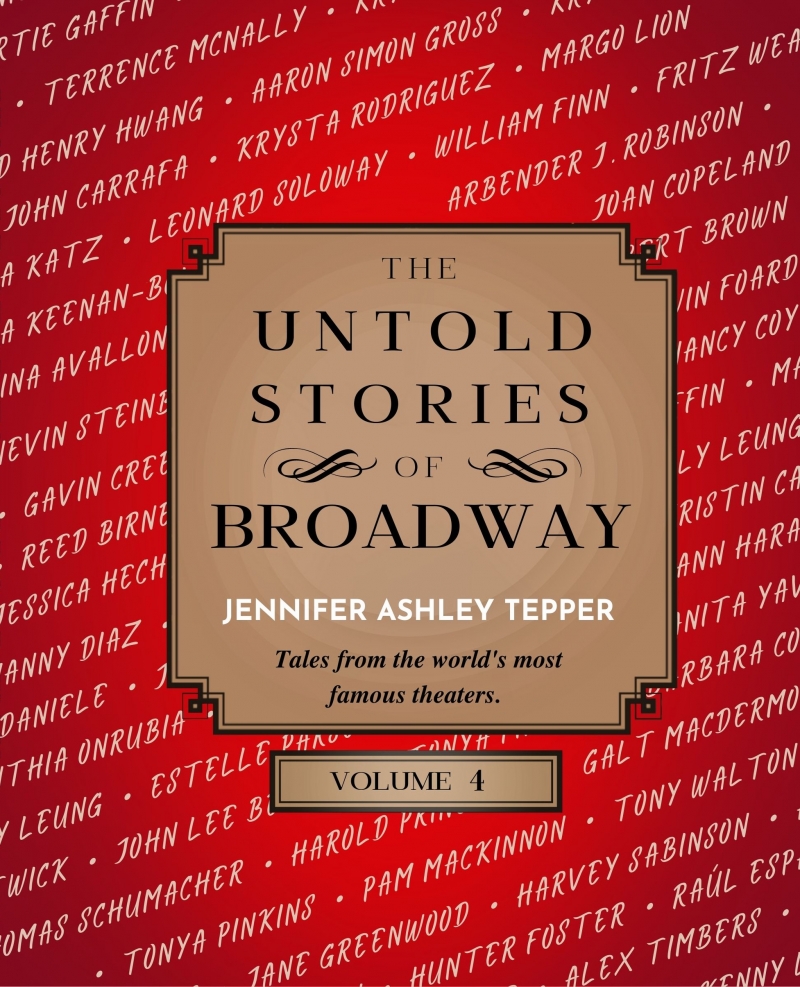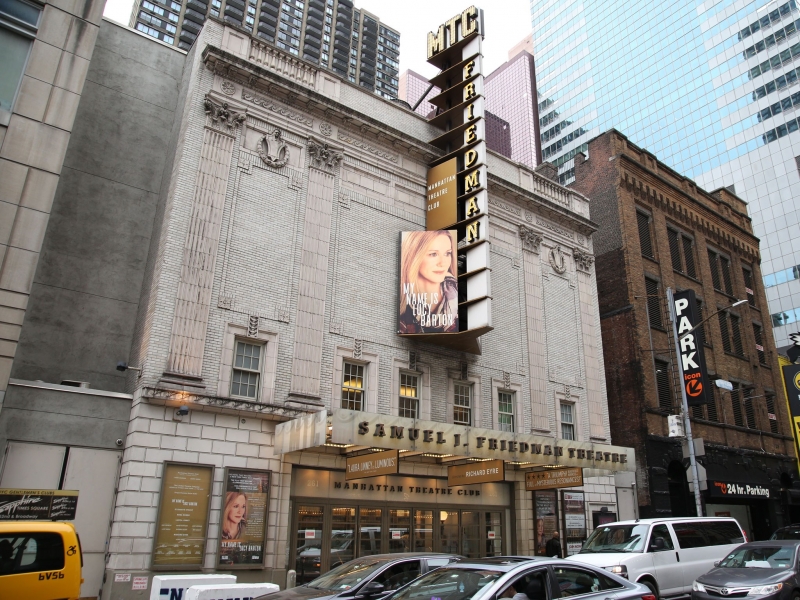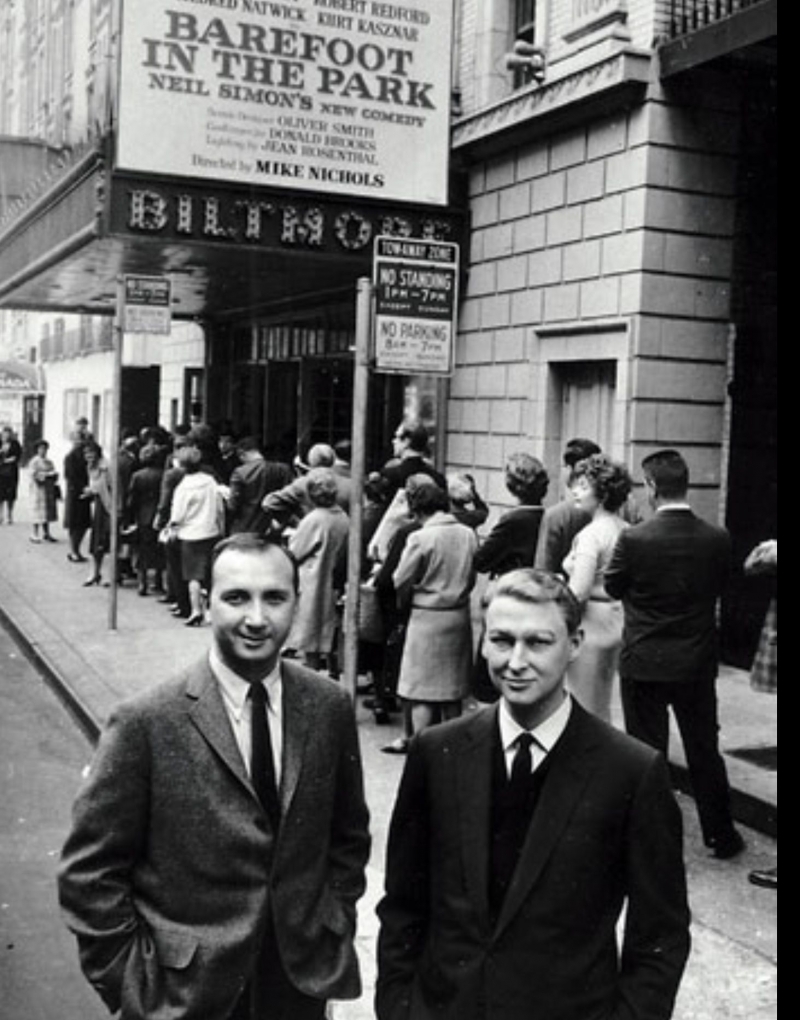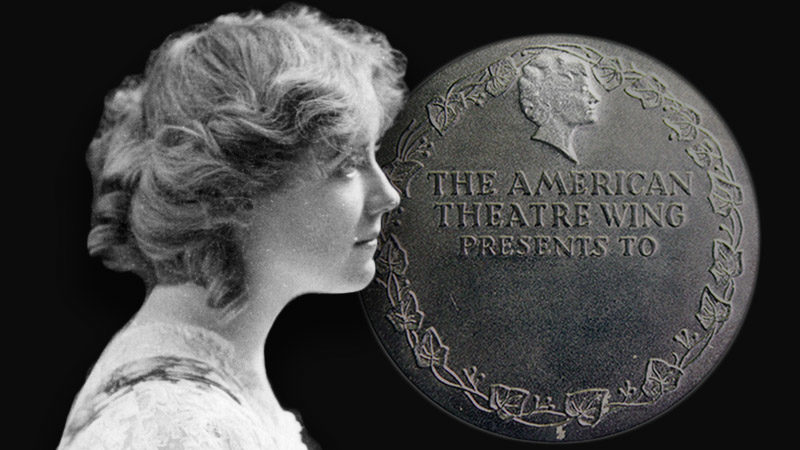BWW Exclusive: Read Jennifer Ashley Tepper's THE UNTOLD STORIES OF BROADWAY, VOLUME 4- Spotlight on The Samuel J. Friedman Theatre
Did You Know: Antoinette Perry, namesake of the Tony Awards, made history at the Samuel J. Friedman Theatre?
 Earlier this month, Dress Circle Publishing released THE UNTOLD STORIES OF BROADWAY, VOLUME 4, the latest in a series by acclaimed historian and producer Jennifer Ashley Tepper. This landmark multi-volume series tells the stories of all of the theaters on Broadway; the new addition includes the beloved houses the Imperial, Jacobs, Studio 54, Minskoff, Friedman, and Golden, as well as the five Broadway theaters that were destroyed in 1982, changing the course of New York City history.
Earlier this month, Dress Circle Publishing released THE UNTOLD STORIES OF BROADWAY, VOLUME 4, the latest in a series by acclaimed historian and producer Jennifer Ashley Tepper. This landmark multi-volume series tells the stories of all of the theaters on Broadway; the new addition includes the beloved houses the Imperial, Jacobs, Studio 54, Minskoff, Friedman, and Golden, as well as the five Broadway theaters that were destroyed in 1982, changing the course of New York City history.
These invaluable books illuminate Broadway through the eyes of the producers, actors, stage hands, writers, musicians, company managers, dressers, designers, directors, ushers, door people and more who bring the theater to life each night.
Can't wait to get your hands on it? While you're waiting for your copy, let BroadwayWorld hold you over with a special sneak peek from a chapter all about the Samuel J. Friedman Theatre:
The Samuel J. Friedman Theatre
Did You Know: The Biltmore is Laura Linney's favorite?
"My favorite Broadway theater I've worked in is the Biltmore. It's the Friedman now, but I still call it the Biltmore.
"For a straight play, it is a great theater. It is the perfect size. In some houses, you feel like you have to play out in an undesirable way because of how large they are, but at the Biltmore you can feel every single seat without pushing. There's a graciousness about playing there. You can lob a line over the footlights and you feel it land beautifully. There's a sense that the theater is holding you in its palm. It's not too wide-I hate when theaters are too wide. There are a lot of houses I haven't played that I would love to, like the Golden and the Jacobs-but of the ones I have played, the Biltmore is my favorite."
-Laura Linney, Actor

Did You Know: The morning after Barefoot in the Park opened, Neil Simon and Mike Nichols served coffee and bagels to everyone on line at the box office?
1961/1963: The Most Peculiar Girl In New York
Elizabeth Ashley, Actor
Less than two years later, I was back at the Biltmore for Barefoot in the Park. That was Neil Simon's first real mega-hit. This doesn't happen anymore, but the morning after opening, the line for tickets stretched from the theater, around the corner of 47th Street and 8th Avenue, up to 49th Street, and then around the corner all the way up to Broadway.
It was snowing that morning, and it was cold. And there was "Doc" Simon, bringing coffee to people in the line. Mike Nichols was walking the line with bagels for everyone.
Barefoot in the Park has this scene where Corie, my character, is running around the apartment in just her tight jeans and a bra when Paul, Robert Redford's character, enters in layers of clothes and a coat. It's snowing through their apartment roof, and it's cold out. The Biltmore was unbelievably hot. The audience would fan themselves. Redford, who had an overcoat and muffler and earmuffs, would be covered in sweat, and each time he moved in this heat, the light would catch the sweat flying off him. Even I, in just my bra, was sweating.
Redford and I complained about this, but nothing was done. Our agents couldn't get a straight answer about it. Finally, it was discovered that David Cogan didn't want to pay for his father to be in a retirement home so he had housed him in the Biltmore, and he needed high levels of heat. He also put him in charge of the concession stand. So, at the intermissions, the whole audience, dying from the heat, would just buy every refreshment they could get their hands on. They finally fixed the heat, and thank God. Audience members had been laughing at parts that weren't even supposed to be funny, just because we were sweating so much!
Barefoot in the Park ran for four years. Imagine a straight play running for that long now! You can't. In those days, a straight play that was a hit could run for a long time just like a musical, and you didn't need a star name.

During Barefoot, there was a guy in the Biltmore box office who I would go to in order to get my paychecks cashed. I didn't have a bank account at the time. He knew I had four house seats in my contract for every performance and he said to me, "I can handle your house seats for you." I told him that my agent, Stark, controlled my house seats; if I had someone who wanted to see the show, Stark would arrange for that person to use my seats. The box office treasurer said to me, "If you ever change your mind, let me know. You could probably make a thousand a week." I wasn't even making that much for doing the show! My paycheck was probably about $750 a week.
I asked my agent if we should get involved with the box office regarding my house seats, and he blew up. "Don't you ever speak to that person again! And don't tell anybody else about that conversation!" Stark told me that it was ice, and I didn't know what that meant. He explained that ice was the name for the black-market tickets that were sold when people re-sold their house seats. I learned about non-taxable cash and just how much you could get for reselling tickets. Stark came from an old Boston family-his father had been headmaster of Choate, and his mother's family probably came over on the Mayflower. He wasn't having any of this ice business.
Before there were computers to resell tickets, there would be all kinds of reselling at the theater and on the street. My friends have always been poor hippie musicians and people of that sort, so I'd always ask in the dressing room if people had house seats that no one was going to buy for that performance. A lot of the time, theatre managers themselves would be out on the street, fanning out tickets at passerby. When I started out, a lot of them came from the old days of vaudeville. If the house wasn't well sold, they'd go out in the street and try to attract people inside. One time, an older theatre manager told me it made him feel like a dope dealer.
Did You Know: Antoinette Perry, namesake of the Tony Awards, made history at this theater?
In 1940, the Biltmore boasted a play called Out from Under, directed by Antoinette Perry. Before the decade was over, Perry would become the namesake of the Tony Awards. In addition to being a director, Perry was an actor and co-founder of The American Theatre Wing. She was instrumental in creating and managing the Stage Door Canteens and providing entertainment to soldiers during World War II. There's a misconception that the only Stage Door Canteen was in New York. The pop-up soldier morale effort, which utilized entertainment and celebrities in such a clever way, was also established by Perry in Hollywood, Boston, Washington, D.C., Philadelphia, Cleveland, Newark, San Francisco, Paris, and London. Unfortunately, she did not live to see the founding and naming of the Tony Awards in her honor. Upon her death, her professional partner, Brock Pemberton, suggested this be her legacy.

Produced by Pemberton, Out from Under starred a 30-year-old pre-I Love Lucy Vivian Vance as a vamp sent to convince a married small-town newspaperman-who has secretly written a steamy novel-into going on a promotional tour. His wife is so inflamed by the novel (which she doesn't know her husband wrote) that she considers running off with a New York banker. It only lasted nine performances, but Vance and the actor who played the banker, Philip Ober, were later married. Perry had greater successes behind her and greater ones to follow as well, including the mega-hit Harvey which opened in 1944 and ran for 1775 performances, still the sixth longest-running Broadway play of all time.
To order THE UNTOLD STORIES OF BROADWAY, visit www.dresscirclepublishing.com.
 Jennifer Ashley Tepper is producer of the musicals Be More Chill, Broadway Bounty Hunter, and Love in Hate Nation, recent projects that are part of a decade-long collaboration with the group known as Joe Iconis & Family. From producing small concerts in basements to producing a show on Broadway, Tepper has cultivated the theatrical collective which The New York Times called "the future of musical theatre." She is also the Creative and Programming Director at Feinstein's/54 Below, where she has curated or produced over 3,000 shows, including musicals in concert, original solo acts, theatrical reunions, songwriter celebrations, and more. Tepper's leadership at the venue has gained praise from publications including The New York Times, Huffington Post, Buzzfeed, Playbill, Newsday, New York Post, and more.
Jennifer Ashley Tepper is producer of the musicals Be More Chill, Broadway Bounty Hunter, and Love in Hate Nation, recent projects that are part of a decade-long collaboration with the group known as Joe Iconis & Family. From producing small concerts in basements to producing a show on Broadway, Tepper has cultivated the theatrical collective which The New York Times called "the future of musical theatre." She is also the Creative and Programming Director at Feinstein's/54 Below, where she has curated or produced over 3,000 shows, including musicals in concert, original solo acts, theatrical reunions, songwriter celebrations, and more. Tepper's leadership at the venue has gained praise from publications including The New York Times, Huffington Post, Buzzfeed, Playbill, Newsday, New York Post, and more.
On Broadway, Tepper has worked on [title of show], The Performers, Godspell, Macbeth, and The Parisian Woman, and off-Broadway Smokey Joe's Café and Boys' Life. Tepper is the conceiver and director of The Jonathan Larson Project which premiered in fall 2018 and received an original cast recording from Ghostlight Records. She is historian consultant on the upcoming tick, tick... BOOM! movie and co-creator of the Bistro Award-winning concert series, "If It Only Even Runs A Minute," now in its 11th year. Tepper recently received a 2020 Lincoln Center Emerging Artist Award. She was named one of the 10 professionals on Backstage's first annual "Broadway Future Power List," which stated: "Proving herself both a zeitgeist predictor and theatrical historian with her eclectic programming, Tepper is leading the conversation on contemporary musical theatre."
Comments

Videos


